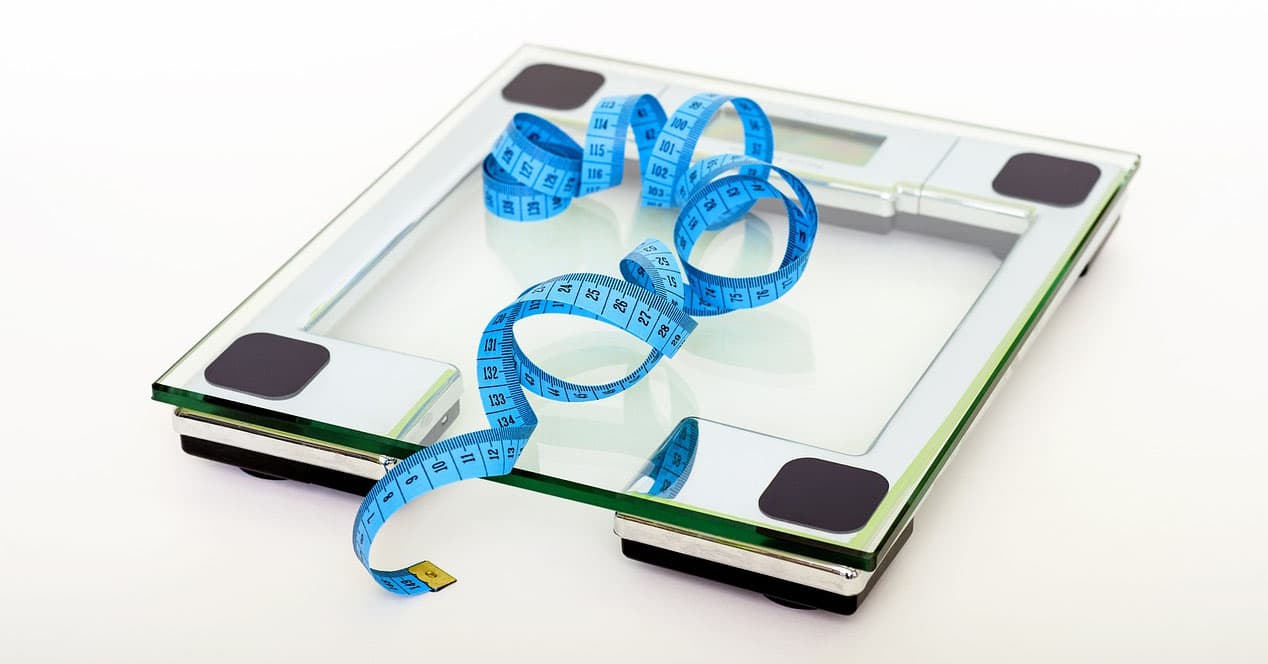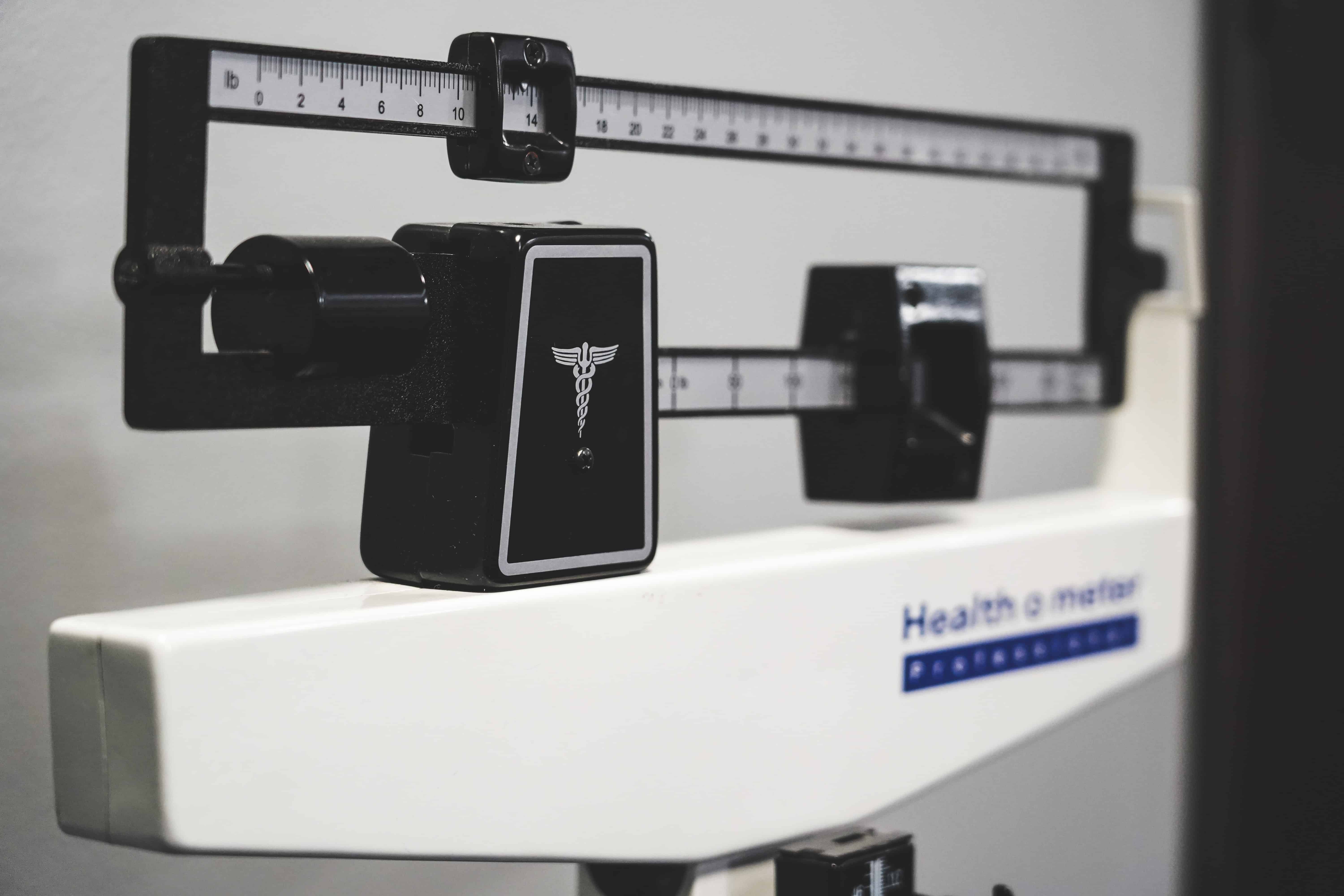
In other articles we have commented that the number that the scale reflects is very subjective with how we are physically. That is, a soccer player can have a weight or a BMI the same as that of an obese person, but his physical qualities will have nothing to do with it. Yes, it's possible that you could be overweight, based on the number on the scale, and be all muscle.
Even so, there are many who decide to take weight as a reference to know how much they lose weight or gain weight. If you are in that control stage, we recommend that you avoid weighing yourself at certain times such as those detailed below.
The best time to weigh yourself
Although a rough estimate of weight can be obtained at any time of the day (or night), we will get the most accurate results by stepping on the scale at first hour of the morning. This implies having emptied the bladder, but before taking a bite of breakfast or a sip of coffee. Waiting until later in the day will cause food and fluids in the digestive tract to change the results.
It is also advised to try to use the scale the same day every week. There are studies that show that our weight tends to increase during the weekends, when we are more prone to get carried away. If we weigh ourselves on Sunday morning after Saturday night's delicious dinner at the restaurant, the number may be a little higher than normal. For that same reason, there are those who say that the Tuesday it is the standard weigh-in day. Monday is too close to the weekend. Tuesday provides the best part of the week to improve your habits for the week.
However, there are some other recommendations that we should take into account when weighing ourselves:
- At night. Always weigh yourself at the same time and with the same clothes, if possible without it. In addition, during the day our body undergoes several digestions, fluids are retained, the stomach fills up and undergoes other processes that can increase our weight. The ideal is to get on the scale freshly up, fasting and rested, in order to obtain a real weight.
- During the menstrual cycle. Logically, this affects only women. Hormones, during menstruation, are revolutionized and favor fluid retention. That is why on many occasions we feel swollen and heavier than we usually have. Try weighing yourself two days before or two days after your cycle to get a more accurate weight.
- After eating. It is normal that after eating we weigh more. Having ingested food, our body undergoes a digestion process that involves metabolizing nutrients. Obviously until this process is finished, we will not have a real weight. In addition, we must bear in mind that going to the bathroom also favors accuracy. We say it again: weigh yourself on an empty stomach.
- After training. When we do physical activity, we tend to sweat and lose fluids. That is why our result will be lower than the real one. As soon as you hydrate and eat food, your weight will automatically rise and you will be fruitful when you weigh yourself again. If you're curious about how much fluid you've lost, that's an option.
As we told you before, the weight should be a secondary metric. It is more important to take into account the percentage of fat to know if we are overweight or not. In addition, the weather, stress, hormones or the amount of liquid that we drink directly influences the weight. We don't only control our physique with food, so don't be obsessed.

how often to do it
Research suggests that the daily weigh-ins may be the most effective for weight loss. There are studies that looked at adults who weighed themselves six to seven times a week and lost about 1,7 percent of their body weight in a year. Those who stepped on the scale just once a week lost nothing.
However, not all experts agree that daily weighing is best. Stepping on the scale every day can make a person more focused on achieving a certain number than on developing healthy eating and exercise habits that can support long-term success. So it is recommended to do no more and no less than once a week. Safe and sustainable weight loss does not lie within minor fluctuations in body weight from one day to the next. It is better to assess progress over a longer time allotted for practicing and adopting new habits.
It is also recommended to get on the scale only once or twice a week. We all have daily fluctuations, and for some people, weighing themselves daily can lead to obsessing about weight, which is not a good thing.
Why do we weigh more at night?
Weight loss statistics show that, on average, daily weight can fluctuate from 1 to 2 kilograms. So, if we notice that we weigh more at night, it is normal. Body weight is usually slightly lower in the morning because we eat less food and fluids overnight and lose water through sweat and respiration.
But not everyone is the same, and above-average weight fluctuations can occur in people with more muscle mass, or related to changes in diet and exercise. So, if we wonder why we weigh less at night and more in the morning, these may be the reasons.
El water it makes up about 75 percent of muscle mass. Therefore, people with greater amounts of muscle mass could experience weight fluctuations of several grams throughout the day as they experience changes in muscle mass. Additionally, runners can lose several liters of water after a multi-kilometer run, and fluid replacement is essential for safety and performance.
The drastic changes in the diet they can also affect how much more we weigh at night by causing weight gain or loss that exceeds the daily average of one to two kilos. For example, if we almost eliminate carbohydrate foods from the diet, the body uses glycogen stores for energy, which can lead to a weight loss of 5 pounds or more in a week and can influence how much we overweight. at night.
Fluid retention is one of the main causes of weight changes overnight. We can retain water if:
- We eat foods high in sodium.
- We consume alcohol in excess.
- We have traveled on a flight or a long trip.
- Premenstrual syndrome.
- The period has just started.

Tips
Perhaps a few more recommendations are needed about when to weigh yourself. If we want to get the most out of the scale, we should keep these guidelines in mind:
- Wear the same garment every time. Stepping on the scale naked will give the most accurate reading. But if we prefer to weigh ourselves with our clothes on, that's fine too. We'll just try to wear the same type of outfit every time we do it and avoid anything that's too bulky or heavy, like a jacket or shoes.
- Use a digital scale. These will give a more accurate reading compared to old fashioned spring scales. Be sure to place the scale on a firm, even floor, such as wood or tile, rather than a softer surface such as carpet.
- Track progress. Taking note of the number each week can help spot overall trends, even if there is a case where we don't lose as much as we expected. Logging your weight on a digital app is tied to the most successful weight loss. But if we prefer to go low-tech, a notebook and pen will also do a good job.
- Don't panic about some weight gain. A higher than expected reading does not mean it is a failure. In fact, the weight of an average adult can fluctuate by up to 2 kilos over the course of a few days. Flashes on the weight radar can occur due to hormonal fluctuations, sodium intake, and even if you've recently had a bowel movement. Let's be consistent with weight loss practices, and only once the weight hasn't changed for six to eight weeks, then we'll consider a different approach.
- Find other measurements. Progress in weight loss comes from regular engagement in healthy behaviors. So instead of just paying attention to what the scale says, tracking the good habits that are driving success is also necessary. No one lost weight just by weighing themselves.
- Stop if the weight triggers negative feelings. We will have to consider whether to give the scale a rest if weighing ourselves makes us feel bad or triggers unhealthy eating or exercise behaviors. We should also avoid weighing ourselves if we have a history of an eating disorder.